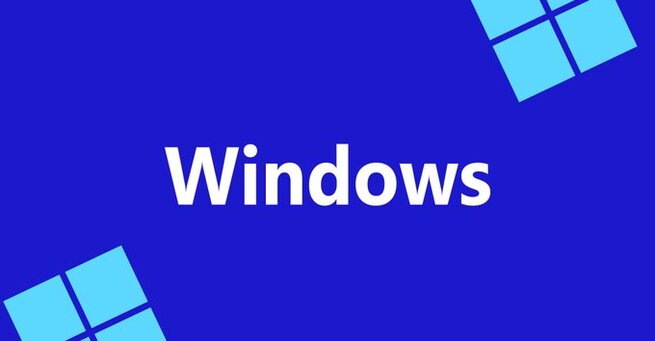
Looking for what Model Context Protocol (MCP) in Windows means and how it impacts AI apps, developers, or the future of smart assistants? Microsoft is integrating the Model Context Protocol—often dubbed the “USB-C of AI apps”—directly into Windows to make AI agents more powerful, accessible, and seamlessly connected. This open standard is set to transform the way AI applications interact with system resources, software, and user data on Windows, creating a smarter, more responsive ecosystem for developers and end users alike.
Originally introduced by Anthropic, the Model Context Protocol (MCP) is an open-source communication standard designed to make AI agents interoperable—much like how USB-C allows devices from different manufacturers to connect with ease. By integrating MCP natively into Windows, Microsoft is enabling developers to build intelligent AI apps that can directly connect with files, services, and system components without needing custom APIs or complex workarounds.
This move is part of a larger strategy that positions Windows as an AI-first operating system, supporting advanced agent-based workloads and smarter automation. Whether it’s querying documents, managing apps, or enhancing productivity, MCP simplifies how these AI-powered agents plug into Windows, boosting performance and compatibility.
Microsoft’s new MCP registry functions as a secure database that lets AI agents discover and connect with available MCP servers on a device. These servers act as gateways to various parts of the Windows system, including the file system, windowing infrastructure, and even the Windows Subsystem for Linux (WSL). Instead of manually inputting directories or commands, users can interact naturally—saying things like “Find my vacation documents”—and have AI agents handle the rest.
This breakthrough was demonstrated with Perplexity AI, which used MCP to search user files effortlessly. It’s a clear example of how natural language processing and system-level integration can revolutionize productivity.
Coinciding with MCP support, Microsoft also unveiled the Windows AI Foundry—its new hub for AI model integration within Windows. This platform supports local models, NVIDIA NIMs, and tools like Ollama, letting developers use existing AI models or bring their own. Through Windows ML, developers can integrate these models without needing to bundle complex dependencies, making AI app deployment easier, faster, and more efficient.
With major hardware partners like AMD, Intel, Qualcomm, and NVIDIA onboard, the AI Foundry positions Windows as a robust playground for developers and a powerful launchpad for edge AI applications on Copilot+ PCs.
While MCP opens exciting doors for smarter software, it also introduces potential AI security risks such as prompt injection, token theft, and malicious server exploitation. Microsoft is aware of these risks and is only rolling out MCP to a select group of developers in preview mode. According to David Weston, Microsoft’s VP of enterprise and OS security, “security-first architecture” is guiding the rollout, with strict guidelines to protect users and infrastructure.
Users will also encounter permission prompts similar to location access in browsers—giving them control over what data AI agents can use. However, Microsoft will need to walk a fine line to avoid intrusive experiences like the infamous UAC popups of the Vista era or iOS’s copy-paste alerts.
With MCP and the AI Foundry in place, Microsoft is effectively turning Windows into an agentic platform—a system where AI apps act more like smart assistants than static tools. Picture an Excel sheet that updates itself with the latest data from the web, or a writing assistant that knows your file structure and can pull relevant references instantly. MCP makes these high-value automation scenarios possible.
For high-value enterprise applications, remote work tools, and cloud-integrated workflows, MCP has the potential to be a game-changer. Developers and organizations aiming for cost-efficient AI deployment, context-aware assistants, and cross-platform integrations will find enormous value here.
Microsoft’s adoption of the Model Context Protocol is not just a technical upgrade—it’s a fundamental shift toward building an OS tailored for the AI era. With MCP enabling secure, plug-and-play interoperability between AI agents and Windows, and the AI Foundry streamlining model integration, Microsoft is laying the groundwork for a smarter, more connected digital experience.
As AI becomes increasingly central to productivity and software design, Windows is evolving into the best OS for AI apps, smart assistants, and context-aware computing. From natural language interfaces to robust AI security frameworks, the future of Windows looks intelligent, integrated, and user-first.
𝗦𝗲𝗺𝗮𝘀𝗼𝗰𝗶𝗮𝗹 𝗶𝘀 𝘄𝗵𝗲𝗿𝗲 𝗿𝗲𝗮𝗹 𝗽𝗲𝗼𝗽𝗹𝗲 𝗰𝗼𝗻𝗻𝗲𝗰𝘁, 𝗴𝗿𝗼𝘄, 𝗮𝗻𝗱 𝗯𝗲𝗹𝗼𝗻𝗴. We’re more than just a social platform — from jobs and blogs to events and daily chats, we bring people and ideas together in one simple, meaningful space.